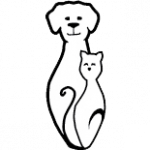Illustrated Articles
-
One particularly dangerous type of foreign body in cats is a linear foreign body: a long, thin object such as string, yarn, or tinsel. If one end of the linear foreign body becomes lodged in the gastrointestinal tract, intestinal perforation may occur due to bunching up of the intestines. The most common signs of a linear foreign body include vomiting, anorexia (refusal to eat), dehydration, and lethargy. If your veterinarian suspects a linear foreign body, your cat will need an exploratory laparotomy (abdominal surgery).
-
Linezolid is an antibiotic used to treat multi-drug-resistant, gram-positive bacterial infections in cats and dogs. Its use is limited to susceptible infections with documented resistance to other antimicrobials. Its use is off label in veterinary medicine. Linezolid comes in tablet and powder forms that may be compounded into liquid.
-
LinkSkin® Spray is a topical solution designed to support the skin barrier in dogs and cats by restoring the balance of microflora on the skin. It contains heat-killed lactobacilli and can help prevent skin infections caused by bacteria and yeast.
-
Liu Jun Zi Tang (6 gentlemen) adresses basic Spleen and Lung Qi deficiency, characterized by loss of appetite, small bowel diarrhea, anemia, pale tongue, shortness of breath, weakness, weak pulse, muscle wasting, feeble cough, and loss of balance. In addition it contains Citrus & Pinellia, two herbs that act together to Transform Phlegm and descend Stomach Qi, thus relieving nausea, vomiting, indigestion and bloating. The anti-Phlegm effects alsomake it of use in slightly productive coughs, while its content of Poria gives it very mild diuretic or Dampness draining properties. Due to its content of the adaptogen Ginseng, this formula should be considered for any patient where chronic stress is considered to be a significant complicating factor.
-
Liu Wei Di Huang Wan is the basic formula to treat Liver & Kidney Yin defiiency. It is most commonly used in geriatrics for the managemetn of typical Kidney Yin deficiency symptoms: low back/hindlimb weakness or pain, increased thirst, dry skin, thin rapid pulse, dry eyes, weight loss despite good appetite, dry stools, mild heat intolerance, red dry tongue.
-
The liver is an important organ necessary for controlling many different body functions. Signs of liver disease in cats include increased drinking and urination, abdominal swelling, jaundice, digestive upset, and weight loss. Signs, diagnostics, and treatments are discussed.
-
Platynosomiasis is a disease caused by a parasitic worm called a liver fluke. It affects cats in tropical and subtropical regions. The lifecycle is complex and involves several hosts. Cats can become infected by ingesting lizards or amphibians that have the larval stages of the fluke. The flukes live in the bile ducts and gall bladder of affected cats, causing symptoms of liver disease.
-
Primary liver tumors in dogs and cats are rare. There are 4 types: hepatocellular tumors, bile duct tumors, neuroendocrine tumors, and sarcomas. These cancers can be massive, nodular, or diffuse in form. In dogs, most liver tumors are malignant, while in cats, most are benign.
-
Cats can have hearing loss due to increasing age or chronic ear infections, or they may be born with a defect. Deafness in cats can present some challenges, but overall they can have healthy, normal lives. It is possible to teach your cat household routines by using hand signals and body language. It is important to take their deafness into account when considering their safety, and they must remain indoors or in outdoor enclosures.
-
Lomustine is given by mouth and is used off label to treat certain cancers such as mast cell tumors and brain tumors. Give this medication as directed by your veterinarian. Common side effects include vomiting, diarrhea, lack of appetite, and hair loss. Do not use in pets that are severely allergic to it. If a negative reaction occurs, please call your veterinary office.

